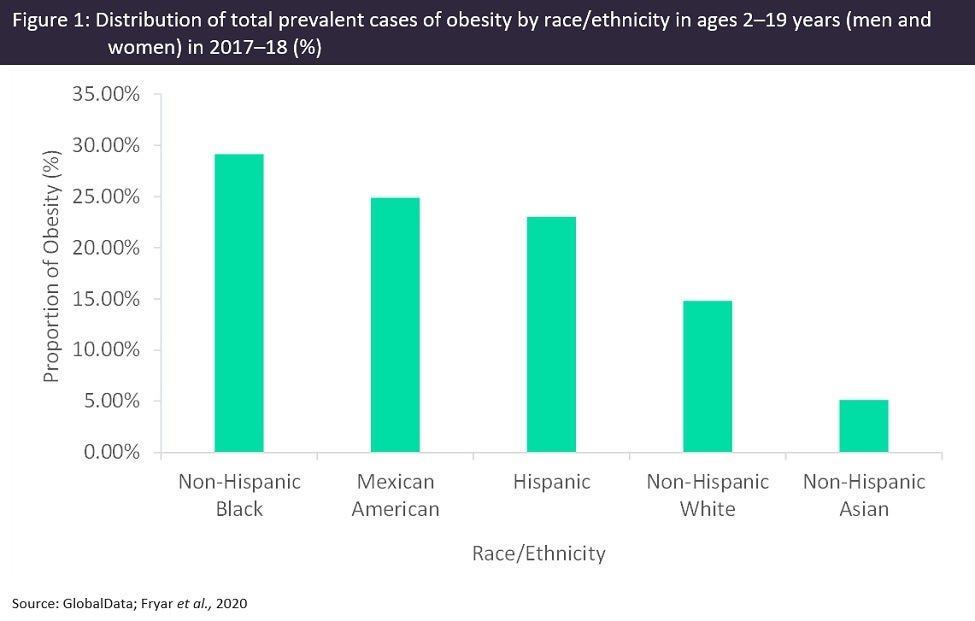The obesity epidemic is a major public health concern that is affecting children and adolescents at an alarming rate. Obese individuals face significant impairments to quality of life in the short term and are significantly more likely to be diagnosed with cardiovascular disease, type 2 diabetes, and cancer in the long term, due to their excessive accumulation of fat. There are several predictors for obesity, including diet, exercise, genetics, and other social determinants of health. In an investigation to find which demographics were most likely to be obese, the US National Health and Nutrition Examination Survey (NHANES) revealed that race and ethnicity, as well as socioeconomic status, both have a significant influence on the likelihood of a child being obese. Examining these trajectories and understanding which populations are most commonly obese in childhood is paramount to reducing the burden of obesity within the US.
A December 2020 study by Fryar and colleagues, published by the Centers for Disease Control and Prevention’s National Center for Health Statistics, shed light on the racial and ethnic disparities in obesity prevalence in children. The findings of the study suggest that in 2017–18, non-Hispanic black, Mexican American, and Hispanic children were most likely to be in the obese category when compared to non-Hispanic white and non-Hispanic Asian children, as shown in Figure 1.
A study by Aaron and Stanford, published in the Journal of Internal Medicine in March 2021, investigated the relationship between obesity and the consumptions of processed unhealthy food; the study found that given the low cost, these foods are more accessible and more commonly consumed by those of a lower socioeconomic status despite the lack of nutritional value. Aaron and Stanford also found that companies producing processed food have historically engaged in disproportionate marketing towards Black, indigenous, and people of colour (BIPOC). Unhealthy body mass index (BMI) status is commonly established at an early age, which then continues into an unhealthy BMI trajectory throughout childhood and into adulthood. So, it is vital that the disparities that are contributing to increased obesity, such as the marketing campaigns for unhealthy, processed foods, are eliminated so that unhealthy behaviours are not adopted from a young age and carried through to adulthood.

GlobalData epidemiologists forecast the total prevalent cases of obesity in the US to increase from 16,882,000 in 2023 to 17,135,000 in 2031 among people aged 5–19 years, at an annual growth rate of 0.8%. As GlobalData analysts forecast that obesity cases will continue to increase, it is vital that targeted campaigns are introduced to prevent childhood obesity, and encourage healthy living, to slow the increase in obesity. But it is also of the utmost importance that marketing campaigns that disproportionately target people’s race or socioeconomic status and encourage unhealthy behaviours are prevented. A better understanding of characteristics related to these developmental trajectories during childhood provides a fundamental step toward building long-term health intervention programs that aim to reduce the significant mental and physical burden that obesity poses.

US Tariffs are shifting - will you react or anticipate?
Don’t let policy changes catch you off guard. Stay proactive with real-time data and expert analysis.
By GlobalData




